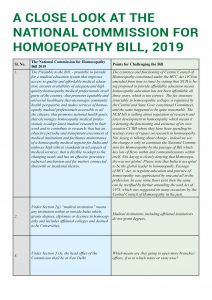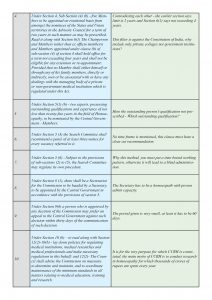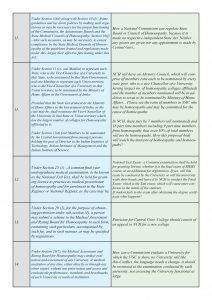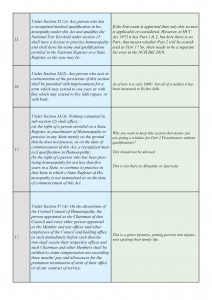Points to Ponder
The Homoeopathic Medical Association of India, one of the largest Association of Homoeopaths across the country, which includes All the Homoeopathic Medical Colleges, Management Committees, Teaching Staff, Students both UG & PG, and Homoeopathic Practitioners, has strongly objected to discrepancies in the National Commission for Homoeopathy Bill 2019 proposed by the Niti Aayog and approved by the cabinet…….
By Amresh K Tiwary
The Central Government under the Act of Parliament namely The Homoeopathy Central Council Act, 1973, has constituted the Central Council of Homoeopathy, which maintains the Central Register of Homoeopathy and regulates the education in homoeopathy in India besides other things.
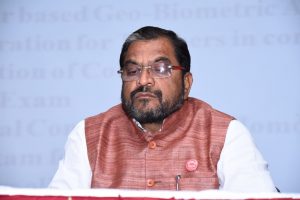 According to Raju Shetty, Member of Parliament and President, National Federation of Homoeopathic Medical Colleges of India, the Bill – preamble to provide for a medical education system that improves access to quality and affordable medical education, ensures availability of adequate and high quality homoeopathy medical professionals in all parts of the country; that promotes equitable and universal healthcare that encourages community health perspective and makes services of homoeopathy medical professionals accessible to all the citizens; that promotes national health goals; that encourages homoeopathy medical professionals to adopt latest medical research in their work and to contribute to research; that has an objective periodic and transparent assessment of medical institutions and facilitates maintenance of a homoeopathy medical register for India and enforces high ethical standards in all aspects of medical services.
According to Raju Shetty, Member of Parliament and President, National Federation of Homoeopathic Medical Colleges of India, the Bill – preamble to provide for a medical education system that improves access to quality and affordable medical education, ensures availability of adequate and high quality homoeopathy medical professionals in all parts of the country; that promotes equitable and universal healthcare that encourages community health perspective and makes services of homoeopathy medical professionals accessible to all the citizens; that promotes national health goals; that encourages homoeopathy medical professionals to adopt latest medical research in their work and to contribute to research; that has an objective periodic and transparent assessment of medical institutions and facilitates maintenance of a homoeopathy medical register for India and enforces high ethical standards in all aspects of medical services.
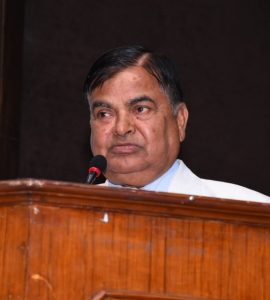 Ramjee Singh, Past National President, the Homoeopathic Medical Association of India (HMAI), said, “The Central Government through the Ministry of AYUSH promulgated the Homoeopathy Central Council Ordinance on 18.5.2018 which later on got passed as a Bill and enacted as an Act by which it superseded the elected President, Vice President and members and replaced them with a Board of six Governors. Now the Government with the help of Niti Aayog is contemplating to repeal Homoeopathy Central Council Act, 1973. It intends to bring National Commission for Homoeopathy Bill which will provide all Chairmen, Presidents and members nominated by the Government but only 4 members to be elected in states from homoeopathy which will be keeping elected members in minority when any policies are to be decided by voting.”
Ramjee Singh, Past National President, the Homoeopathic Medical Association of India (HMAI), said, “The Central Government through the Ministry of AYUSH promulgated the Homoeopathy Central Council Ordinance on 18.5.2018 which later on got passed as a Bill and enacted as an Act by which it superseded the elected President, Vice President and members and replaced them with a Board of six Governors. Now the Government with the help of Niti Aayog is contemplating to repeal Homoeopathy Central Council Act, 1973. It intends to bring National Commission for Homoeopathy Bill which will provide all Chairmen, Presidents and members nominated by the Government but only 4 members to be elected in states from homoeopathy which will be keeping elected members in minority when any policies are to be decided by voting.”
“There is only one National Institute of Homoeopathy at Kolkata and even this institute does not reach above 60% of the minimum standards and regulations for a Homoeopathic Medical College. There are 26-state run homoeopathic medical colleges in different states in the country and all these government colleges are not up to the mark. For the last 16-17 years it is the Central Govt. which is permitting the homoeopathy colleges every year to make admission of students in place of the said Council. In between for 5 years, the Central Govt. on its own granted amnesty and did not allow the Central Council to implement regulations,” Dr Ramjee Singh, added.
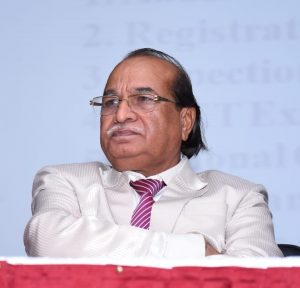 Dr Arun Bhasme, Secretary General (HMAI), said, “What is the guarantee that the National Commission as proposed now by the Central Government will be able to improve the standards of education in homoeopathy. Instead the Central Government can amend the existing HCC Act 1973 as proposed by the Central Council many times. We would like to highlight the contradicting issue of proposed bill to protect the democratic aspect of the existing Central Council of Homoeopathy.”
Dr Arun Bhasme, Secretary General (HMAI), said, “What is the guarantee that the National Commission as proposed now by the Central Government will be able to improve the standards of education in homoeopathy. Instead the Central Government can amend the existing HCC Act 1973 as proposed by the Central Council many times. We would like to highlight the contradicting issue of proposed bill to protect the democratic aspect of the existing Central Council of Homoeopathy.”
According to Dr Arun Bhasme, following are some of the issues which homoeopathic fraternity would like to oppose with regard to the National Commission for Homoeopathy Bill 2019:
Though there are 30 states and 44 universities where BHMS and post-graduation in homoeopathy courses is conducted, how can only 4 elected persons represent the whole of India. The Central Council of Homoeopathy which is still existing has 55 elected members (though removed); how can only 4 members substitute them?
The Central Council of Homoeopathy is maintaining the Central Register in 2 parts i.e. Part I and Part II, now the National Commission for Homoeopathy Bill 2019 has only one Register that means all Part II practitioners will get converted into Part I?
The Government of India while trying to fit itself into the ambit of Niti Aayog, is challenging its own creation – The Central Council of Homoeopathy and Central Council for Research in Homoeopathy. The New National Commission for Homoeopathy Bill 2019 says that it will take up the research work, then what will happen to the existing Council?
This National Commission for Homoeopathy Bill 2019 will totally demolish the previously existing democratic process by building a new autocratic process.
Today Niti ayog is saying affordable education – does it mean that all these years homoeopathic education was not affordable? (Even earlier to 1973, homoeopathic education was affordable).
Homeopathic Central Council Act 1973 introduced by Government of India is regularizing and bring uniformity in homoeopathic education across the country, now, what is it that Niti Aayog by introducing The National Commission for Homoeopathy Bill 2019 trying to say? It can very well say the same thing by amending the existing HCC Act?
Under Section 3(3) the Head office of the National Commission for Homoeopathy will be at Delhi. Does it mean that there are possibilities of opening more offices/ Branches?
Under Section 4 (4) (B), the National Commission for Homoeopathy Bill 2019 says that the term of office is not more than 2 years, but, the Section 6(1) says not extending 4 years – look at the inconsistencies present in the National Commission for Homoeopathy Bill 2019 which is going to be introduced? In the Proviso, it says no members elected or nominated should have any family member or connection with any private or non-governmental institutions – here why only private, it should also include government, so that partiality do not exist?
The National Commission for Homoeopathy Bill 2019 says he chairman should have outstanding qualifications with 25 years of administrative experience – What qualification will make a person outstanding and from where can we find such extraordinary person?
The Section 5(2) of The National Commission for Homoeopathy Bill 2019 talks about filling of the vacancies arising due to various reasons within 3 months of the date, similar section existed in HCC Act but the Central Government failed to do so despite repeated reminder sent from Central Council of Homoeopathy to the Ministry of AYUSH, will it do it now?
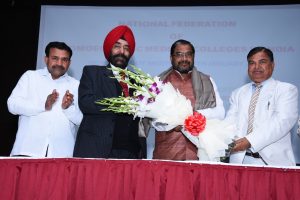 The National Commission for Homoeopathy Bill 2019 is introducing a National Exit Exam for the under-graduates of homoeopathy – BHMS – it is not clear whether final exams will be conducted by a University at the end of four and half years of course or whether Exit Exam will be conducted by the Commission after award of degree but before grant of registration. The National Commission for Homoeopathy Bill 2019 appears to challenge the examination of the University, if conducted and if the candidate fails, then what happens to the degree issued by the University?
The National Commission for Homoeopathy Bill 2019 is introducing a National Exit Exam for the under-graduates of homoeopathy – BHMS – it is not clear whether final exams will be conducted by a University at the end of four and half years of course or whether Exit Exam will be conducted by the Commission after award of degree but before grant of registration. The National Commission for Homoeopathy Bill 2019 appears to challenge the examination of the University, if conducted and if the candidate fails, then what happens to the degree issued by the University?
Even if the government. of India thinks of bringing the National Commission for Homoeopathy Bill 2019, it will be the same people sitting at the helm of affairs in homeopathy. Like this many more issue are contradictory in the proposed National Commission for Homoeopathy Bill 2019, all these things need to be addressed before thinking of introducing the Bill.
A Close look at the National Commission for Homoeopathy Bill, 2019
